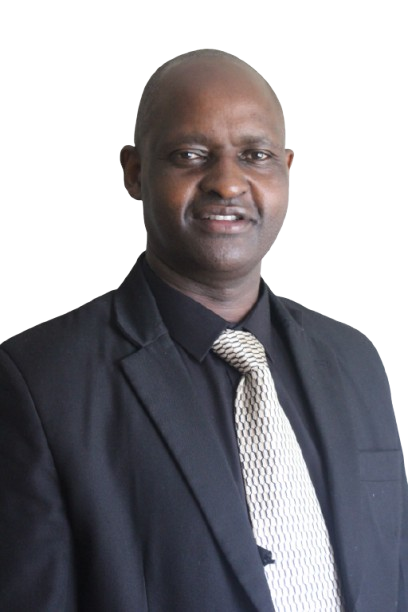
Associate Professor, Aquatic Sciences Department, Egerton University, Kenya
Prof. M’Erimba received a PhD in Natural Sciences from the University of Vienna, Austria, in 2004. He has been the Director of the Board of Postgraduate Studies since January 27, 2025. Before this role, he was the Director of Linkages and Collaborations, where he fostered key partnerships and collaborations.
As the Coordinator of the Njoro River Rehabilitation Project, Prof. M’Erimba led the successful restoration of 25 acres of forest at the river's source in Entiyani, Narok, and the reclamation of critical sections near Egerton Main Campus. These efforts culminated in the formal handover of the rehabilitated sites to the Narok and Nakuru County Governments on February 23, 2024. He also serves as the Njoro Ward Climate Change Committee chairperson in Nakuru County.
In addition to his leadership roles, Prof. M’Erimba has contributed significantly to the university's growth as the former Director of Institutional Advancement (now the Directorate of Marketing and Resource Mobilization), where he led initiatives to enhance the university's visibility and strengthen funding opportunities. He has coordinated the Stream and River Ecology component for over seven years in the joint master's degree programme, Limnology & Wetlands Ecosystems (LWM), at Egerton University.
A highly regarded expert in riverine ecosystems, Prof. M’Erimba has supervised numerous postgraduate and undergraduate projects and has served as an external examiner for universities, including Addis Ababa University in Ethiopia.
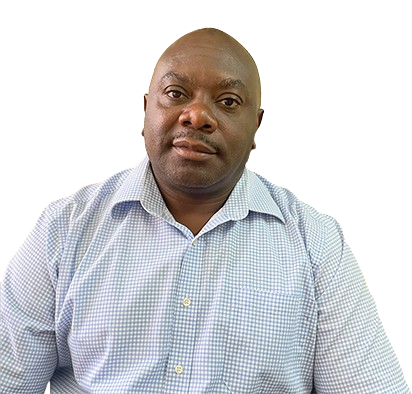
Head of Ichthyology, National Museums of Kenya
Edward Njagi is a leading Research Scientist in the Ichthyology Section of the National Museums of Kenya (NMK). With over 20 years of experience in freshwater and marine fish research, he has extensively explored nearly all hydrographic areas in East Africa, including lakes, rivers, swamps, streams, and floodplains. His work has significantly contributed to fish taxonomy, ecology, and conservation, particularly in understanding how climate change and human activities impact aquatic biodiversity.
Njagi has led several key projects in Kenya, including serving as the Principal Investigator in the development of an aquatic environment monitoring plan using the Biological Condition Gradient (BCG) framework for the Upper Tana Catchment, funded by The Nature Conservancy. He also leads the “Biodiversity of Rivers in the Lake Victoria Basin” project, funded by the JRS Biodiversity Foundation, and has conducted extensive studies on the fishes of the Tana River and Yala Swamps.
Njagi is a member of the IUCN Fish Species Specialist Group and has actively contributed to the assessment and categorization of freshwater fish species in East Africa. His global collaborations span multiple institutions, enhancing research efforts in fish taxonomy, ecology, and biodiversity conservation.
Beyond research, Njagi has served on the boards of the Institute of Culture and Ecology (ICE) and the National Steering Committee of the UNDP-GEF Small Grants Programme in Kenya. He has also shared his expertise as a part-time lecturer at Chuka University and the Kenya Wildlife Training Institute, mentoring the next generation of aquatic scientists.
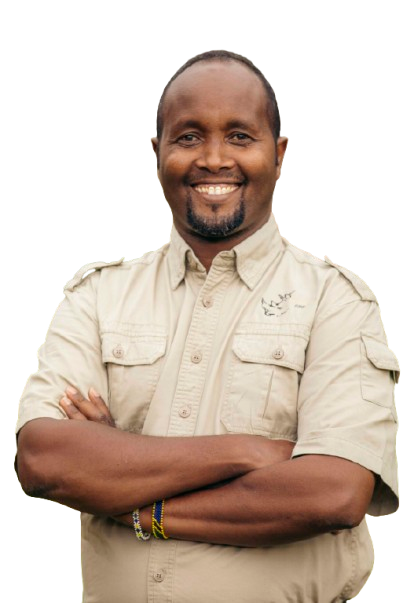
Tanzanian biologist and conservation geneticist
Dr. George Lohay is a Tanzanian biologist and conservation geneticist with over 15 years of experience in wildlife conservation. He currently serves as Head Scientist at the Grumeti Fund, where he leads applied conservation research and training through the RISE (Research and Innovation for the Serengeti Ecosystem) program. His work emphasizes mentoring graduate students and early-career researchers, particularly women in science, through initiatives such as Women in Conservation Technology and Women in the Field.
Dr. Lohay joined the Grumeti Fund in 2023 after completing a postdoctoral fellowship in the Department of Biology at Penn State University, where he co-led a project on the population genetics of Masai giraffes in collaboration with the Wild Nature Institute. He earned his Ph.D. in Biology from Penn State in 2019, focusing on the genetic connectivity of African savanna elephants in Tanzania. Early in his career, he worked as a research assistant with the Serengeti Lion Project under Prof. Craig Packer, tracking and monitoring lion populations from 2009 to 2011.
Dr. Lohay holds a B.Sc. in Wildlife Science and Conservation from the University of Dar es Salaam and a B.A. in Philosophy from Uganda Martyrs University. He is committed to restoring Tanzania's wildlife corridors, which are threatened by habitat loss and fragmentation. His current research explores conservation genetics, landscape connectivity, and the drivers of illegal bushmeat hunting.
As a principal investigator, Dr. Lohay leads studies on gene flow in lions and giraffes, the socioeconomics of the wildmeat trade in the Serengeti, and vulture demography and forensic entomology in collaboration with North Carolina Zoo and Texas A&M University. He also spearheads technological innovations in conservation, including AI-powered camera traps and GIS-based monitoring tools.
In addition to his conservation work, Dr. Lohay is an executive secretary and co-founder of Tanzania Education Initiatives (TanEDU), a nonprofit focused on education, environmental, and gender issues in northern Tanzania. Through his leadership, Dr. Lohay advances local capacity building and conservation efforts throughout northern Tanzania and beyond.

Bakari Chaka is a Researcher at the Directorate of Research, Innovation & Outreach as well as a faculty member at the Department of Mathematics and Physical Sciences, Maasai Mara University, Kenya. Most of his research items are based on environmental chemistry with a specific focus on organic water pollutants as well as renewable energy systems. Chaka is currently working on assessment and mapping of several organic based pollutants including pesticide residues, polycyclic aromatic hydrocarbons (PAHs) and per and poly fluorinated alkyls (PFAs) from several surface water bodies in the Mau-Mara ecosystem. Together with his research team consisting of established and early career researchers, they are currently working on a project by MRS to aid in material shipping from underserving students in East Africa to USA for characterization. Chaka has also been engaged in a community-based project to develop a hybrid energy conversion system at Mt Suswa, Narok utilizing waste biomass, solar energy and geothermal by The French National Centre for Scientific Research.
Chaka has published several research articles in Chemistry and five in other fields (https://scholar.google.com/scholar?hl=en&as_sdt=0%2C5&q=bakari+chaka&oq=bakar), one mini-review as well as reviewed several articles in this field. He has also registered two intellectual properties and is currently commercializing one of them under the Business name: BioAfricat Solns. Chaka is a member of the Royal Society of Chemistry and the British Ecological Societies professional bodies.
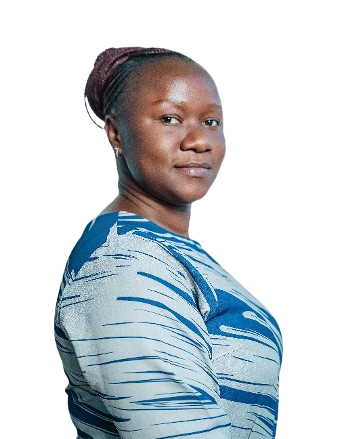
Position: PhD Researcher at Vrije Universiteit Brussel
Beryl is a passionate advocate for sustainable freshwater resource use and management. Currently, she is a PhD student at Vrije Universiteit Brussel (VUB) working under water and climate research group. Her area of research is Lake Victoria, where she is investigating environmental impacts of cage aquaculture on the lake’s water quality and ecology. Beryl has a Master's degree in Limnology and Wetland Management from BOKU University (Austria), IHE-Delft (Netherlands), and Egerton University (Kenya). Additionally, a bachelor's degree in Science from University of Eldoret (Kenya).
She has scientific expertise in limnology, ecology, conservation and remote sensing. Beryl has been involved in community-based natural resource management and stakeholder engagement in River Yala basin through Interwoven Waters project: https://hydr.vub.be/projects/interwoven-waters . This project explored the connections between people, food, water, and the environment in the Lake Victoria Basin through a blend of research, participatory art, and policy engagement. Since 2024, she is a member of the Lake Victoria Advisory group (LVAG-ACARE) where she contributes strategic oversight and scientific expertise to support the organization’s mission to protect African Great Lakes and their tributaries. Being a board member of Freshwater Guardians Organization, Beryl brings her scientific and collaborative expertise aimed to enhance organization’s mission to safeguard freshwater ecosystems in Kenya.

Julie Bwoga is an aquatic animal health scientist and advocate for fish welfare and sustainable aquaculture. She currently serves as Program Manager for the African Fish and Aquaculture Welfare (AFIWEL) Program at the One Health and Development Initiative (OHDI), where she leads efforts to improve fish welfare, promote ethical aquaculture, and strengthen food security across multiple African countries.
Julie is pursuing a Ph.D. in Fisheries Science at Rhodes University, South Africa, where her research focuses on the population genetics of Gyrodactylus parasites and their epidemiological impact on farmed and wild tilapia. She holds a Master’s and Bachelor’s degree in Fisheries and Aquatic Sciences, a Postgraduate Diploma in Technical Trainers Education, and a Diploma in Fisheries and Aquaculture Management. Her expertise is further enriched by certifications in Deep Sea Fisheries Management in Areas Beyond National Jurisdiction (ABNJ), Environmental Policy, and International Trade in Fisheries and Aquaculture Products. Passionate about advancing the welfare of aquatic animals, a neglected area in global animal welfare, Julie combines scientific research, policy advocacy, and capacity building to drive systemic change. Her work is grounded in the One Health approach, recognizing the interconnectedness of human, animal, and environmental health. Through AFIWEL, she is committed to creating scalable, evidence-based interventions that improve aquatic animal welfare, support vulnerable communities, and contribute to more ethical and sustainable food systems.
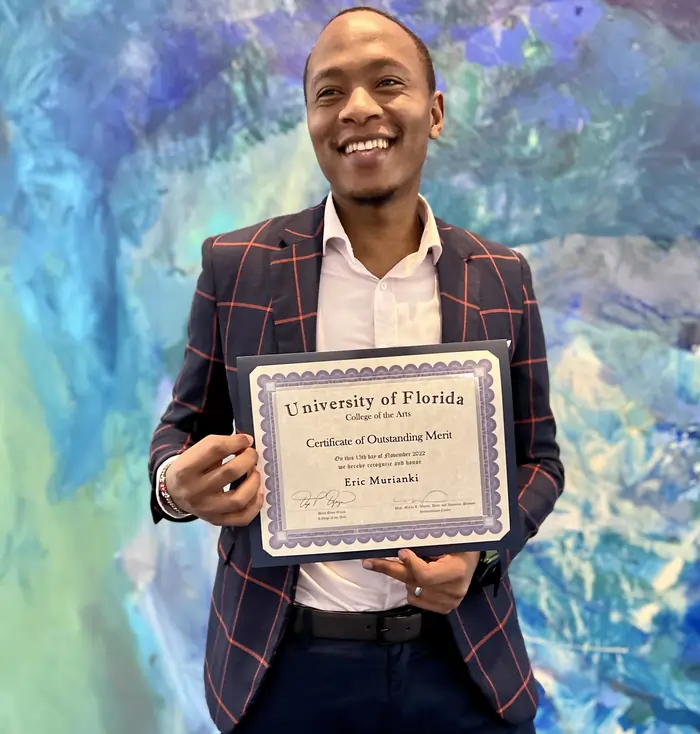
Dr. Murianki is an internationally engaged music educator, scholar, and cultural advocate who uses the transformative power of music and the arts to foster social and environmental change. Originally from Kenya and currently based in the United States, Eric holds a Ph.D. in Music Education from the University of Florida and is pursuing a Master of Music Therapy at the University of Kansas. His career reflects a deep commitment to community empowerment, intercultural dialogue, and the preservation of both ecological and cultural heritage.
For over a decade, Eric has used music as a platform to promote awareness, healing, and advocacy. He has directed choirs and ensembles across academic, faith-based, and civic settings, including founding the Sounds of Sub-Sahara Ensemble, which explores contemporary African popular music, and directing the Pazeni Sauti Africa Choir, the University of Florida’s only ensemble dedicated to African choral traditions. His creative leadership has brought African musical traditions to new audiences while advocating for issues ranging from public health to youth empowerment.
Eric’s research and public scholarship center on multiculturalism in music education, indigenous knowledge systems, and the role of music in social movements. His presentations and publications—including work on music therapy, African popular music, and musical activism—reflect his interdisciplinary approach and passion for advocacy. Whether analyzing Benga music’s role in political discourse or facilitating therapeutic songwriting with children, Eric champions music’s potential to connect, educate, and transform.
As a “people person” and lifelong environmental steward, Eric is excited to contribute to Freshwater Guardians’ mission. He believes that protecting freshwater ecosystems is not only a scientific or policy issue, but also a cultural and ethical imperative—one that can be powerfully supported through the arts. With his unique blend of expertise in music, education, and grassroots engagement, Eric brings a dynamic voice to the Board and is dedicated to fostering creative, inclusive, and sustainable approaches to water advocacy.
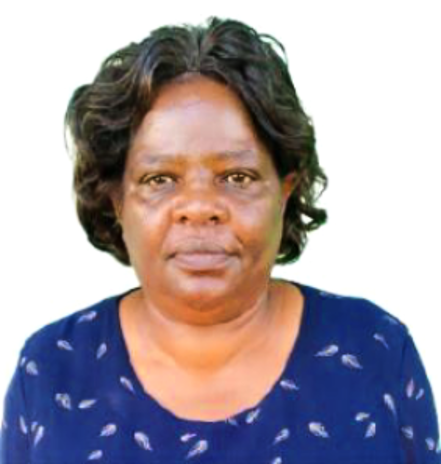
Principal Research Scientist, Kenya Marine and Fisheries Research Institute (KMFRI)
Priscilla Boera is a Principal Research Scientist and Liaison Officer at the Kenya Marine and Fisheries Research Institute (KMFRI) in Nairobi, with over 30 years of experience in aquaculture, fisheries, and environmental research. She is currently pursuing her Ph.D. at the University of Eldoret, focusing on the conservation of the critically endangered Oreochromis jipe from Lake Jipe.
Her career has spanned major East African water bodies including Lake Victoria, Lake Naivasha, and Lake Jipe, where she has advanced sustainable aquaculture practices, biodiversity assessments, and conservation strategies. She has authored more than 15 peer-reviewed publications and contributed to key regional policies, such as the Mara River Basin Water Resources Management Strategy and effluent standards for the Lake Victoria Basin.
Priscilla has successfully led and managed research projects funded by SIDA, USAID, and Kenya’s National Council for Science, Technology and Innovation, among others. She is also deeply committed to training and capacity building, equipping local communities and research institutions with tools for improved fisheries management, aquaculture development, and environmental stewardship.
Her dedication to linking science with policy and community livelihoods continues to make a lasting impact on freshwater conservation and sustainable fisheries across East Africa.